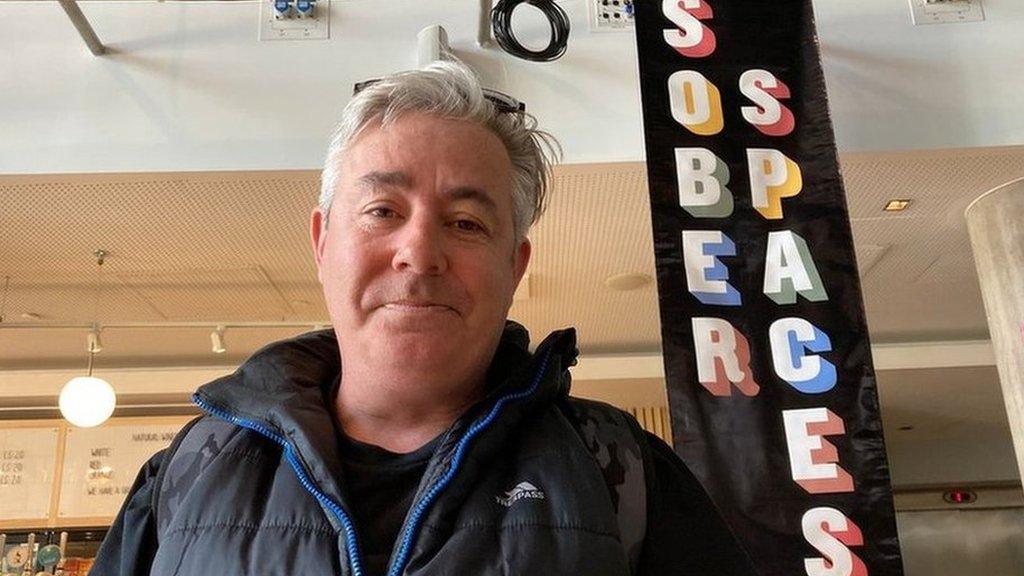Gloucestershire women embracing alcohol-free lifestyle
- Published
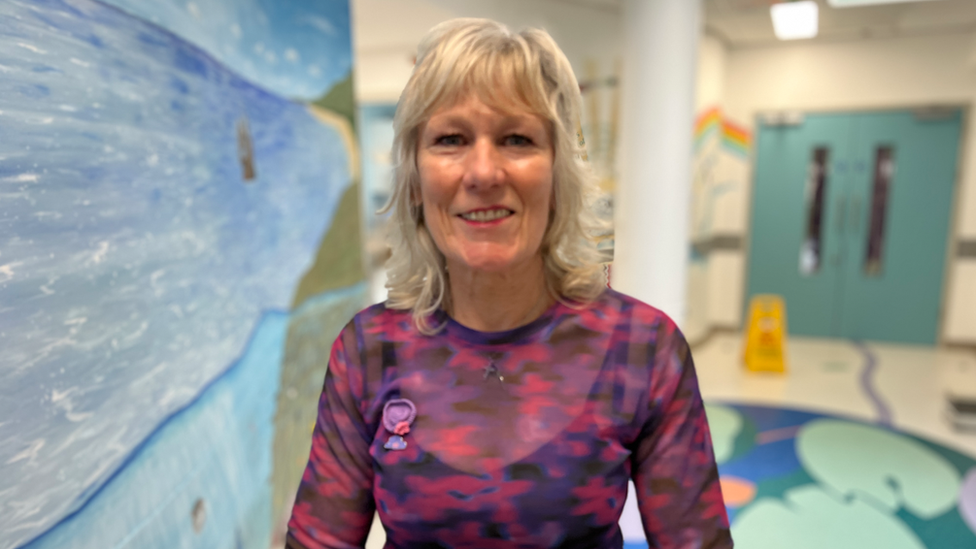
"I think there are probably quite a lot of people that drink way more than they intend to," said Julie Kent MBE
As the festive season fast approaches, some people are considering swapping cocktails and bubbly for an alcohol-free alternative, as an increasing number of people begin to question their relationship with alcohol.
One of these people is Julie Kent MBE, who decided to give up drinking over six years ago after realising her relationship with alcohol was becoming "unhealthy".
"I drank every day. I would drink up to three bottles of wine and I just decided that I wasn't going to drink anymore," she told the BBC.
"The trouble is, the more you drink, the more you can drink, your body accepts it and gets used to it."
Ms Kent said there are probably a lot of people who drink more than they intend to.
"Certainly on holiday, we would drink from lunchtime straight through. It just built up really."
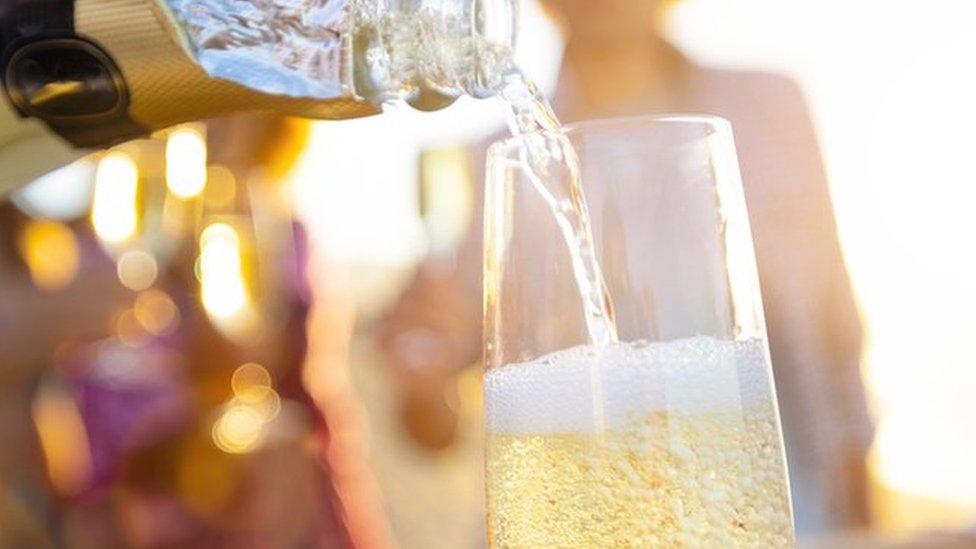
There's a warning about the ripple effect 'risky drinking' can have on families, communities and local services
A recent report, external from Gloucestershire's health leaders has warned of the ripple effect so-called "risky drinking" can have on families, communities and local services.
The annual report, published by Gloucestershire director of public health Siobhan Farmer, highlighted society's complex relationship with alcohol and the impact it has on us.
The report found the number of high-risk drinkers almost doubled during the pandemic from 4.8 million people in February 2020 to 8.4 million in September of that year.
The NHS recommends that adults drink no more than 14 units per week, external - equivalent to 14 single shots of spirits, six pints of beer and a bottle and a half of wine.
Those considered to be high risk consume above 35 units for women and 50 units for men.
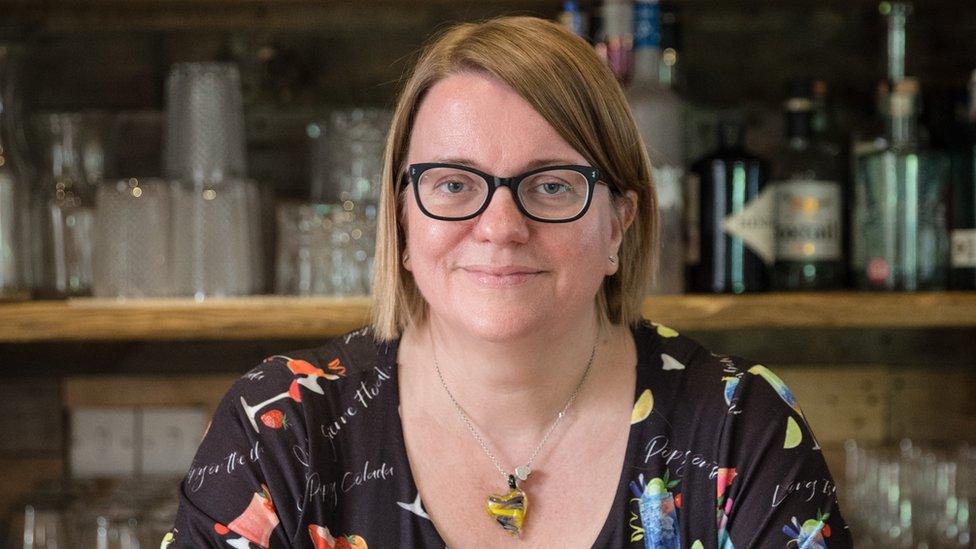
Business-owner Harri Fell said she could not stop at just one glass of wine
Harri Fell, a hotel owner from Gloucestershire, said her drinking was "unhealthy" but not "excessive".
But she soon realised she was an all or nothing person and when she opened a bottle of wine, she would go on to finish it.
"I would come home and have a glass of wine. But I didn't stop at the glass," she said.
When she found herself struggling with inexplicable anxiety and sleep issues, she decided to give up the booze.
"I was waking up worrying about everything. Almost as soon as I gave up drinking, I was sleeping through the night and my anxiety was almost gone."
She gave up alcohol almost five years ago and has recently set up her own non-alcoholic mobile bar and delivery business.
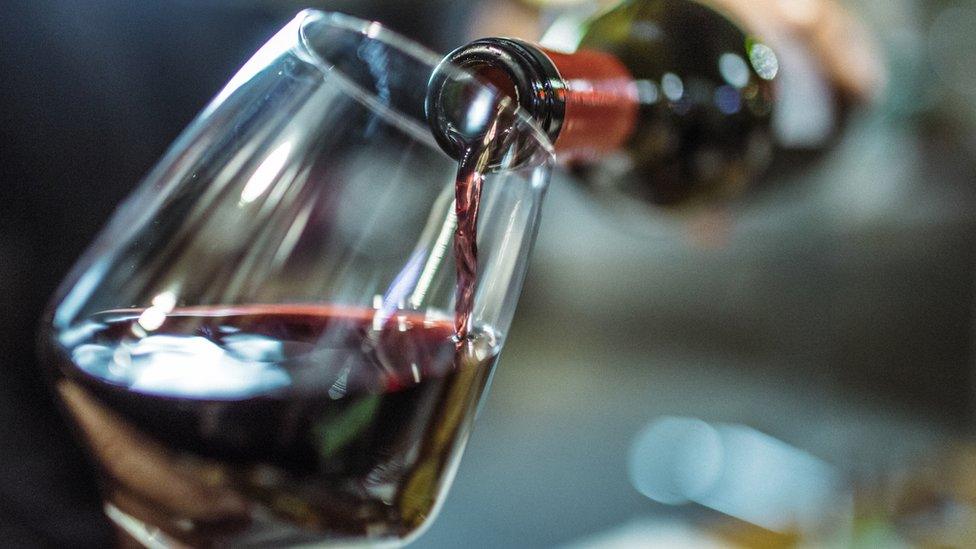
A report from Gloucestershire's director of public health says drinking more than 14 units a week is considered 'risky'
National trends show that levels of higher-risk drinking are consistently higher among more affluent people.
In Gloucestershire in 2021, mortality from liver disease was 18 per 100,000 - significantly higher than the English average.
Mike Major, from Change, Grow, Live, a charity that supports people with alcohol issues, said some people became dependent drinkers during the Covid-19 lockdown.
"We're seeing a lot more people coming in for treatment for alcohol," he said.

Sober-curious? Tips for cutting the booze
Before you go out, set a limit for how much you're going to drink and a budget for your spending on alcohol
Tell your friends and family that you're trying to cut down
Take it steady - try cutting back a little more every time you drink
Mix up your habits, order a small glass or a half-pint instead and alternate alcoholic drinks with soft ones

Ms Fell said she has seen an increased demand for low or non-alcoholic drinks at her hotel.
She said there is a trend towards people being quite careful with what they are drinking, adding that people are more likely to drink during the festive season or if they have something to celebrate.
Recently, more people are beginning to question their relationship with alcohol - a term often referred to as being "sober-curious, external".
Unlike sobriety, which is a often a lifestyle choice as a result of alcoholism or alcohol use disorder, sober-curiosity allows people to question or change their drinking habits for health-focused and wellness reasons.
Ms Farmer said her report aims to open up conversations to encourage people to address "risky" drinking and the harmful ripple effects of excessive drinking.
She said the subject is a cause close to her own heart, as her mother, who was a heavy drinker, died from alcohol-related liver disease, external.
"If alcohol is becoming something that's affecting your life, affecting your ability to function, go to work, or you're risking yourself or others, then that for me is what risky drinking means," she said.
However, she said it can be difficult for people to admit they have a problem because alcohol is legal and socially acceptable.

Follow BBC West on Facebook, external, Twitter, external and Instagram, external. Send your story ideas to: bristol@bbc.co.uk
Related topics
- Published27 October 2023
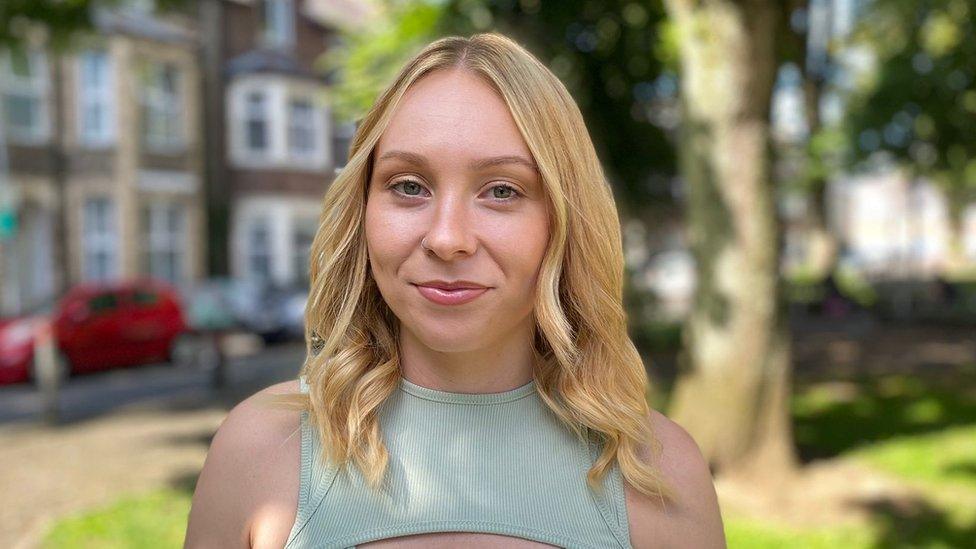
- Published16 January 2023
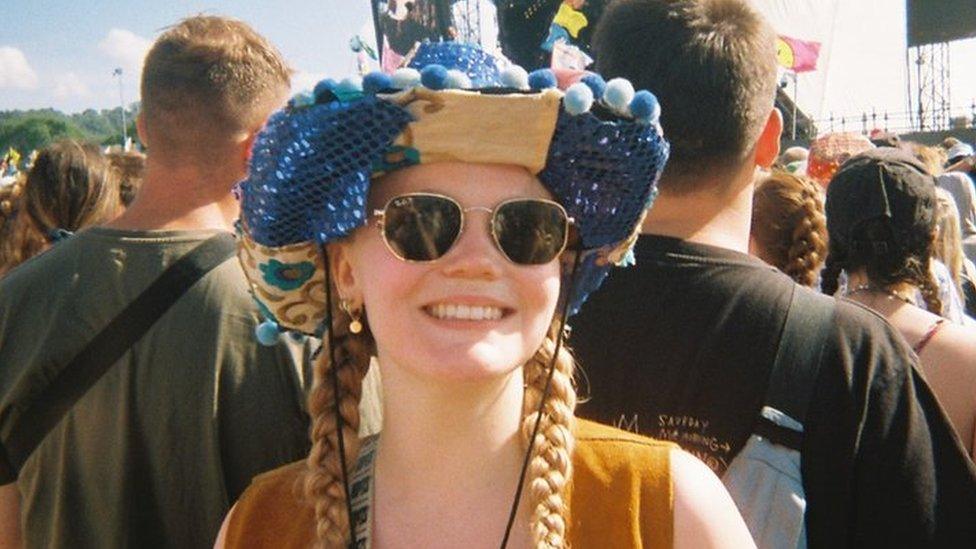
- Published5 May 2022
